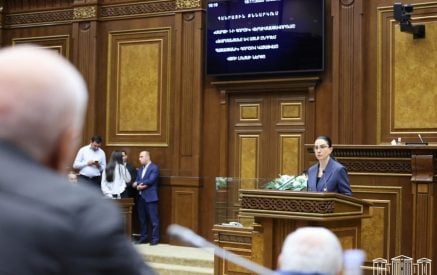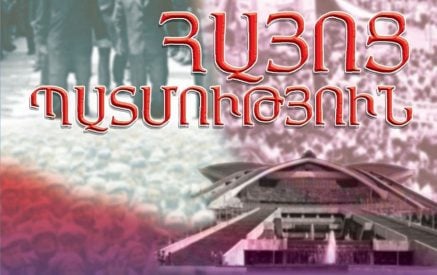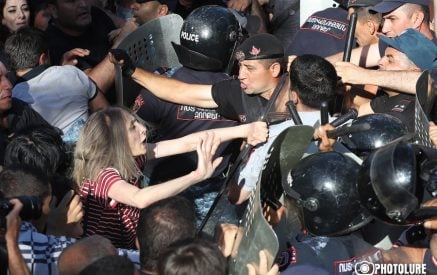In the late 1980s, when the “reconstruction” and the attempts of “re-assessment of the past” have already entered a deadlock, famous philosopher Merab Mamardashvili expressed such a thought in one of his interviews, “In the past, we were only embedding the existing prejudices. We outline the contours of the future as a wonderful transformation of scoundrels, immature and zombie into beings in bright and white clothes. But where do they come from?”
It’s a deep thought not only that such wonderful transformations are impossible, but about the correlation of the past and present. On the one hand, we say, “it was the time to do so, there was no other choice,” be it Anastas Mikoyan’s activities, numerous clamorous and “unresolved” murders in Armenia and Karabakh during 1990s, or the “pre-EaEU” agreement. Times were so, we say, and the high interests of the state required such violent actions. Perhaps, some 10 years later, such an estimation will be given to “March 1” too. So far, we speak of “October 27” and “March 1,” but we do not remember assassinations of Hambardzum Ghandilyan, Artur Mkrtchyan or Vahram Khorkhoruni. So, all these crimes can be attributed to “cruel times” unavoidable phenomena. On the other hand, when we come across to any perverse phenomenon in our lives, we say, “This psychology comes still from the Soviet times,” or, “Well, what do you want? We are a nation of no statehood for centuries.” As soon as one comes to power, he begins to “cry”, “oh, what a legacy I have got.” Thus, we justify both our previous mistakes (“times were so”) and the right to make present mistakes (“accursed past spots”). With such a burden, we are going to build our “bright future”, with beings dressed in white and bright clothes.
Saying “we”, I want to emphasize the responsibility for all of us. When people replace this pronoun with the third person, the pronoun “they”, it turns out to be the situation that exists. “They” did or do nasty things, while “we”, what we did or do, we acted and act solely by the interests of the state, although, of course, we have to be cruel and evade the law. It is a wrong approach: judge yourself by the same principles by which you judge your brother.
… A story of one brother. Albert Göring, one of the leaders of the Nazis, Hermann Göring’s true brother, during the years of Fascism, using his connections, rescued hundreds of people from concentration camps, opposed to “high state interests.” After the war, he was imprisoned for two years. Then, he had lived in poverty, despised, rejected by the society as a brother of a criminal. He was not dressed in white, nor was a sinner.
ARAM ABRAHAMYAN






















































